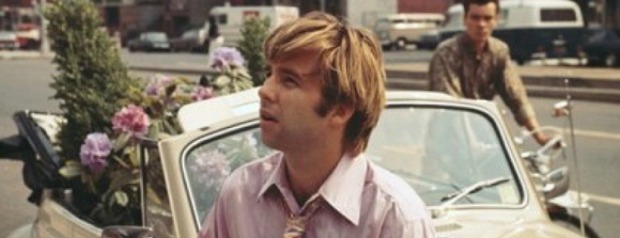The Landlord
The Landlord is a real race-relations curio; a social comedy that atomizes racial tension in a post-Sixties Brooklyn neighbourhood.
Plot summary
A young New York aristocrat buys himself an inner-city tenement, in the transitional neighborhood of 1970 Park Slope, Brooklyn, planning to evict all the occupants and construct a luxury home for himself.

The Landlord is a real race-relations curio; a social comedy that atomizes racial tension in a post-Sixties Brooklyn neighbourhood. When the decade of youthful cultural and political awakening ends, tensions and readjustments soon follow, and here they are deftly exhibited through the prism of big city gentrification.
Beau Bridges plays a naïve young man from a wealthy WASP background who is casting about for a direction to take. He hits upon a tenement building conversion as a project, and finds a rundown brownstone in Park Slope to make into a luxury town house. It’s a black part of town (though now, perhaps unsurprisingly, it’s a borough for white yuppie parents) and his tenants view him as an intrusive anomaly. Their funny but sincere attempts to put him off by showcasing their eccentricities have the opposite effect, and Elgar eagerly befriends the resident matriarch, Marge (Pearl Bailey) and beautiful housewife Fanny (Diane Sands). His romance with Lanie, a mixed-race club dancer, and newfound enthusiasm for the poor and politically awakened black community is met with disgust by his old-fashioned family. Despite his attempts to integrate himself in his new neighbourhood, Elgar’s well-meaning but simple understanding of race is ultimately challenged by all comers.
There’s a dated artiness about the film that sometimes charms, and sometimes feels misjudged (some speaking to camera, for instance). The comic moments, while enjoyable, do not add up to a full-blown comedy, and the bouts of WASPy racism that were designed to rile the 1970s viewer will now shock modern ones – but the wonderfully natural performance from Diane Sands and the comedic ones from her co-stars are absorbing and memorable. All is directed with great assurance by Hal Ashby, a first-time filmmaker who went on to helm the cult classic Harold and Maude.
Gentrification is as old a topic as the hills – no doubt our cave-dwelling ancestors had views of a kind on the matter – but here it is tackled with intelligence and the refusal to plate up a pat answer is commendable. The final chapter’s critique of privilege hits the mark just so, and for this alone politically aware fans of cinema will find this film worth looking up.











COMMENTS